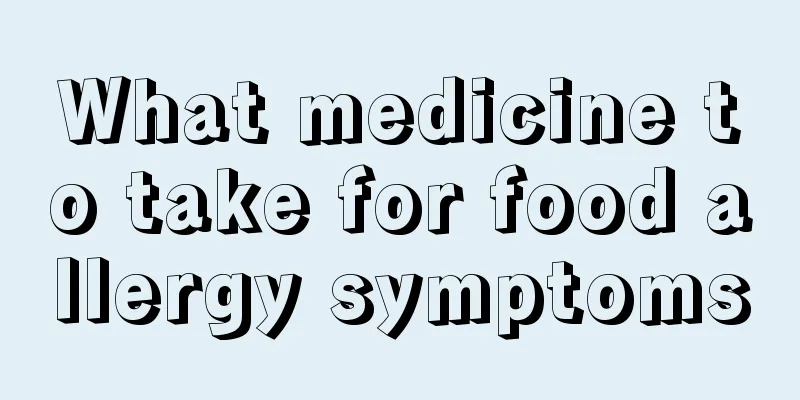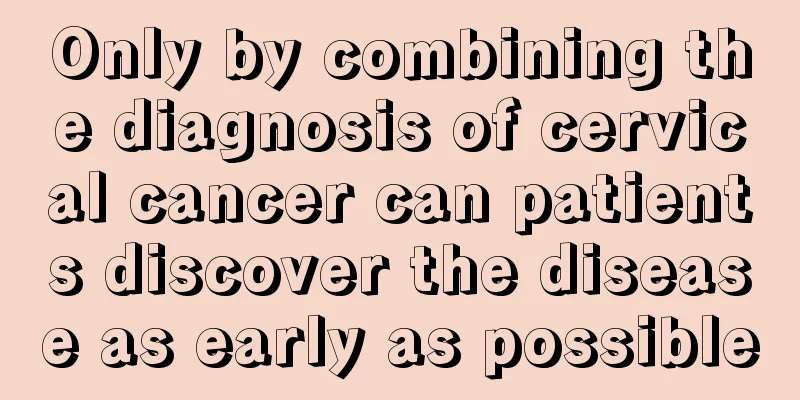What medicine to take for food allergy symptoms

|
Food allergy is a common phenomenon because people cannot predict which foods they will encounter in their lives that will cause allergic symptoms. However, once an allergy is discovered, timely treatment is required, otherwise it will affect your health. Usually, many people will choose to take medicine to treat food allergies, but the decision needs to be made based on their actual situation. So what medicine should be taken for food allergy symptoms? 1. Symptoms of food allergy Skin symptoms, such as itching, redness, swelling, etc.; Gastrointestinal symptoms, such as abdominal pain, nausea, vomiting, diarrhea, itching and swelling in the mouth; Respiratory symptoms, such as itching, swelling, and wheezing of the nose and throat; Itchy and swollen eyes; Cardiovascular symptoms such as chest pain, irregular heartbeat, low blood pressure, fainting, and even death. 2. What medicine should I take for food allergies? 1. Antihistamines. This is the most commonly used anti-allergy medication and is best used for type 1 allergic reactions. Commonly used ones include diphenhydramine, isoproterenol, chlorpheniramine, cyproheptadine, astemizole, and terfilin. This type of drug is an H1 receptor blocker. Because it has a similar chemical structure to histamine, it can compete with it to antagonize histamine receptors. It has a good therapeutic effect on skin and mucous membrane allergic reactions, and is effective for skin itching and edema caused by insect bites. It is also effective for urticaria caused by serum sickness, but is ineffective for those with joint pain and high fever. It has a poor effect on bronchial asthma. Dosage should be individualized, and drivers or machine operators should avoid using central nervous system 2. Allergic reaction mediator blockers, also known as mast cell stabilizers, while working. This type of drugs mainly includes sodium cromoglycate (Yantai), sodium hydroxypropyl ketotifen (mepiprofen), etc. It is mainly used to treat allergic rhinitis, bronchial asthma, ulcerative colitis and allergic dermatitis. 3. Calcium supplement. It can increase the density of capillaries, reduce permeability, thereby reducing exudation and alleviating or relieving allergic symptoms. It is often used to treat urticaria, eczema, contact dermatitis and serum sickness. Adjuvant treatment of allergic diseases such as angioedema. The main one is calcium gluconate. Calcium chloride, etc., is usually given intravenously and works quickly. There is a sensation of heat when calcium is injected, so it should be injected slowly. If the injection is too fast or the dose is too large, it may cause heart rhythm disorders, and in severe cases, it may cause ventricular fibrillation or cardiac arrest. 4. Immunosuppressants. It mainly has a nonspecific inhibitory effect on the body's immune function and is effective for all types of allergic reactions, but it is mainly used to treat refractory exogenous allergic reactions, autoimmune diseases and organ transplantation. This type of drug mainly includes adrenal cortical hormones, such as prednisone, dexamethasone, as well as cyclophosphamide, thiothiazide, etc. |
<<: What are the symptoms of finger synovitis
>>: What causes teeth to grow inwards?
Recommend
Is tea tree oil useful for acne
Acne not only affects people's appearance, bu...
How to remove tea stains from thermos cup
Since thermos cups have good heat preservation pr...
Atrophic gastritis feels gastric alkaline
There are many types of stomach diseases, and atr...
How to remove nitrite from bird's nest
Authentic bird's nest has many benefits. It n...
What are the treatments for fibroids
What are the treatments for fibroids? In life, ev...
Tinnitus and deafness should alert you to the occurrence of nasopharyngeal cancer
If unexplained deafness and tinnitus occur, it ma...
How to solve the problem of constant bloating and farting?
Some friends always feel that their stomach is bl...
Ovarian cancer 10-year survival rate. Late-stage treatment is very important
What is the survival rate of ovarian cancer after...
How to treat new wounds without leaving scars
Wounds are breaks in the skin caused by various r...
Analysis of the methods for checking fibroids
What are the methods for analyzing the examinatio...
Does having prostate cancer affect pregnancy?
Prostate disease is a common male disease that ca...
What are the treatments for small liver cancer
Small liver cancer is what we commonly call early...
What to do if your face feels tight, peeling, and stinging
As people get older, their metabolism slows down,...
Experts analyze the clinical manifestations of bone tumors
Generally speaking, benign bone tumors grow slowl...
What is the effect of plugging onions into ears
What are the benefits of plugging onions in the e...









